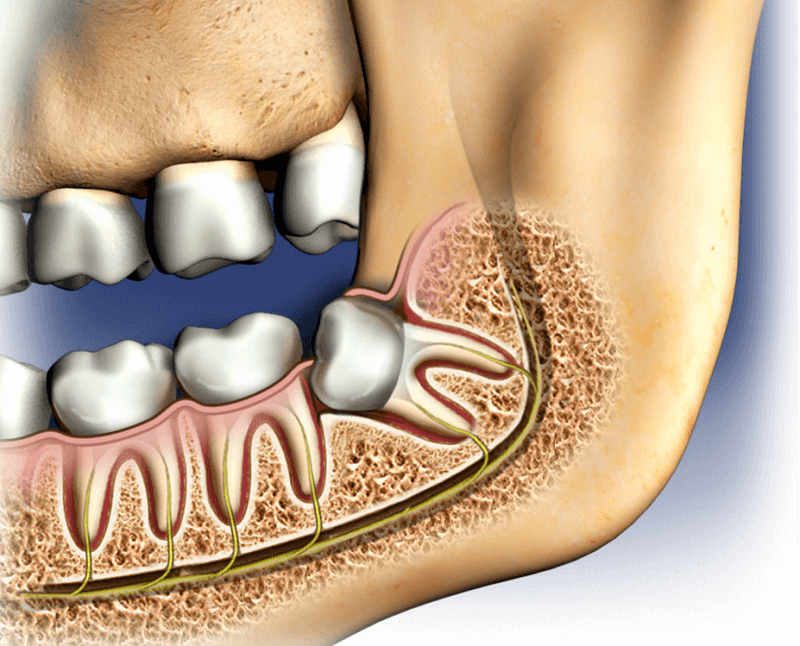Exploring Different Sedation Options for a Comfortable Wisdom Teeth Removal Experience

Regional Anesthetic
Local anesthesia is a typically utilized technique for numbing certain areas of the mouth throughout knowledge teeth removal procedures. By administering a regional anesthetic, such as lidocaine, a dentist can guarantee that the patient continues to be comfy and pain-free throughout the extraction process.
Among the primary advantages of local anesthetic is its targeted numbing impact, which suggests that just the details area being treated is impacted. This localized strategy decreases the danger of systemic side impacts and permits a quicker recovery post-procedure. wisdom teeth removal aspendale. In addition, local anesthesia is considered to be a secure and regular method in dentistry, with minimal dangers involved when carried out by a skilled specialist
Nitrous Oxide

As soon as the mask is eliminated, the results of the gas put on off swiftly, permitting individuals to resume their normal activities without sticking around sedative impacts. Nitrous oxide is appropriate for patients of all ages, making it a flexible sedation option for wisdom teeth extractions and various other dental treatments.
Oral Sedation

Unlike intravenous sedation, oral sedation does not require needles or injections, making it a much more comfy choice for individuals with a fear of needles. In addition, oral sedation is taken into consideration safe and efficient when administered by skilled oral professionals.
IV Sedation
Provided intravenously by qualified physician, IV sedation is a powerful technique made use of to cause a regulated state of deep leisure and unconsciousness during oral procedures. Unlike oral sedation, which can be unforeseeable in its results, IV sedation enables accurate control over the level of sedation, making it an ideal option for intricate treatments like wisdom teeth extractions.
During IV sedation, a sedative medication is provided straight into the bloodstream with a capillary, enabling it to useful content work swiftly and successfully. This approach makes certain that the person remains not aware and comfortable of the treatment while still preserving vital features such as breathing and heart rate.
One of the primary benefits of IV sedation is its ability to offer a deeper level of sedation contrasted to other methods, making it especially suitable for patients with high degrees of anxiety or those going through substantial dental work. Additionally, the effects of IV sedation commonly put on off progressively after the treatment, decreasing the probability of grogginess or sticking around adverse effects. On the whole, IV sedation offers a risk-free and effective choice for making sure a comfy and trouble-free experience during knowledge teeth extraction.
General Anesthetic
Having discussed the advantages of IV sedation for wisdom teeth extraction, the usage of basic anesthetic provides a different option for people calling for a deeper degree of unconsciousness during dental procedures. General anesthesia causes a controlled state of unconsciousness, making certain the individual feels no discomfort or discomfort throughout the extraction procedure. This method is specifically useful for individuals with severe oral anxiety, complicated surgical needs, or those going through several extractions all at once.
General anesthesia is provided by a qualified anesthesiologist that closely keeps an eye on the patient's essential indications throughout the treatment. It involves using intravenous drugs or inhaled gases to induce a state of unconsciousness. While under basic anesthetic, the client will certainly not understand the surgery, experience any type of pain, or have any kind of recollection of the treatment later.
Although general anesthesia is risk-free when provided by certified experts, it brings a somewhat higher danger compared to various other sedation alternatives. wisdom site teeth removal aspendale. Individuals considering general anesthesia for wisdom teeth extraction should talk about the prospective dangers and advantages with their dental expert or dental specialist to make an informed decision based upon their specific needs and case history
Conclusion
In final thought, numerous sedation alternatives are offered to make certain a comfortable wisdom teeth removal experience. Local anesthetic is click resources generally used for numbing the particular area, while nitrous oxide offers relaxation and pain relief. Oral sedation and IV sedation offer much deeper levels of relaxation, depending on the client's needs. General anesthesia can be utilized for a lot more complicated situations. It is necessary to consult with your dental professional or dental doctor to determine the most ideal sedation alternative for your procedure.
Nitrous oxide is ideal for patients of all ages, making it a functional sedation option for wisdom teeth extractions and other oral treatments.
Unlike intravenous sedation, oral sedation does not require shots or needles, making it an extra comfortable option for people with a worry of needles.One of the key benefits of IV sedation is its ability to supply a deeper degree of sedation compared to other approaches, making it especially ideal for clients with high levels of anxiousness or those going through extensive oral work.Having reviewed the benefits of IV sedation for knowledge teeth extraction, the utilization of basic anesthesia offers a different option for people calling for a deeper degree of unfamiliarity during oral treatments. Oral sedation and IV sedation offer much deeper levels of relaxation, depending on the patient's requirements.